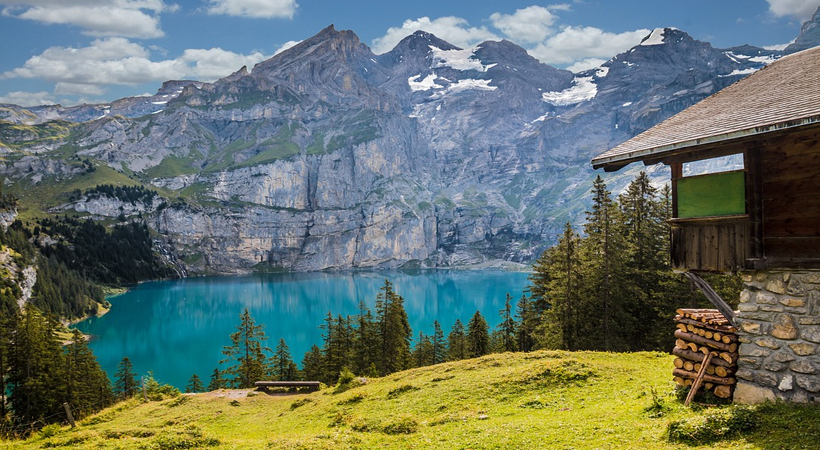Switzerland’s tourism in trouble, pins hope on Asian travellers

According to a study by HES-SO Valais institute, Swiss tourism could lose up to CHF8.7 billion ($9.2 billion) in 2020, pushing almost a quarter of businesses to the brink of bankruptcy.
“The effects in the short term are already terrible,” says Véronique Kanel, spokesperson for Swiss Tourism, the organisation responsible for promoting Switzerland’s tourism industry. “And the forecasts for summer remain very cautious, with an occupancy rate of 24% for the hotel sector and 42% for other holiday accommodation.”
The impact is expected to vary from region to region across the country, according to a report by Swiss Info. Deserted in the spring with the decline in business travel and conference cancellations, cities like Lucerne, Geneva and Zurich have been especially hard hit. Overnight stays are expected to fall by almost 50% in cities this summer, versus 20% to 30% for the Alpine regions, according to forecasts by the Swiss Economic Institute (KOF).
The Alpine regions — with the exception of popular destinations like Interlaken and Zermatt — are normally less dependent on foreign tourism than city centres.
With virus fears and social distancing in place, even more Swiss are expected to forego holiday plans abroad. They are also likely to spend their summer holidays in mountain pastures rather than densely populated city centres, says Swiss Info.
With borders closed around the world and most air traffic at a standstill, the tourism sector is suffering under the weight of the coronavirus pandemic. According to the World Tourism Organisation (UNWTO), the impact of the pandemic could see the number of international tourists this year decline 60% to 80%; a fall never seen before in the 70 years since records were first kept in 1950.
In summer more than winter, Switzerland is heavily dependent on international visitors, which account for more than half of recorded overnight stays. Despite campaigns launched by local authorities to encourage local travel this summer, clients from Switzerland and neighbouring countries will not be enough to compensate for the lack of foreign travellers, the Swiss Info report says.
“Even if there are fewer of them than Europeans, these [non-European] tourists spend the most money during their trips to Switzerland,” comments Nicolas Délétroz, professor at HES-SO Valais’ Institute of Tourism.
It is not only the hotels, restaurants and transport that will suffer from the absence of these guests. In Lucerne, watch stores generate almost 90% of their revenues from tour group travellers, largely from China.
In Geneva, tourists from the Middle East will be sorely missing from the luxury hotels and boutiques during the month of August, a period when the shores of Lake Geneva are particularly attractive to this wealthy clientele.
The experts do not expect non-European tourists to return before 2021. And it will take more time for the sector to return to 2018 levels of activity.
“We could very well imagine that, sooner or later, taking a seaside holiday on the other side of the world could become obsolete. But for many Asian tourists, Switzerland will certainly remain a country that one has to visit at least once in their lifetime,” says Délétroz.




